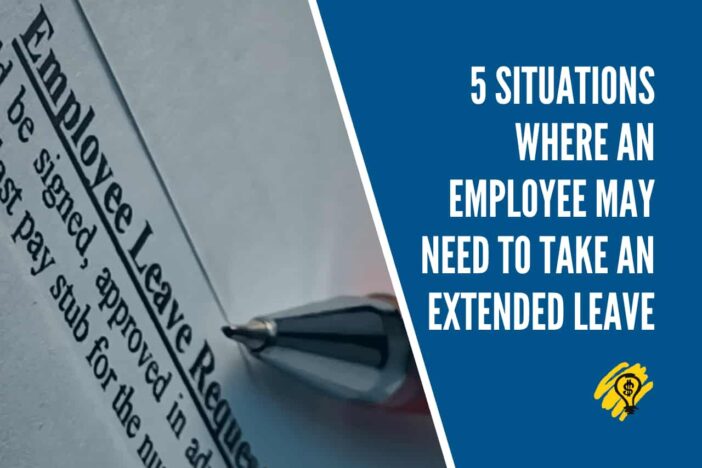Missing an employee for a day or a week usually isn’t too much of a problem for most businesses. There might be some inconveniences, but you’ll probably be able to manage.
What is harder to manage is when an employee needs to take an extended leave. There are various situations when an employee will seek to take several weeks to months off from work.
As an employer, you shouldn’t necessarily fire someone who needs to take a long time off from work. In fact, there are various laws against this practice. However, you should ask for some proof to validate why someone needs to take so much time off.
It can be difficult when an employee must take a long time off from work. Here are five situations where an employee may need to take an extended leave.
Newborn
One of the most common reasons employees may need to take an extended leave is because they have a newborn baby. Having a baby is an extension experience for both mothers and fathers.
The amount of time a company is willing to give off varies. Some may offer a fair amount of time for fathers and mothers, while others will give more time off to mothers. Whether this time is paid off varies as well.
For the most part, employers can usually tell whether an employee had a newborn or not. Still, some will ask for proof, like a copy of a birth certificate or a bill from the hospital.
Illness in the family
If an employee’s family member is sick, they may need to take some time off from work to care for them. This can range from anything like taking them to doctor’s appointments to being their primary caregiver.
Employers should be understanding of this type of situation. After all, no one wants their family member to be sick.
Unlike having a newborn, this situation may require employees to show more proof they’re not lying about their family member’s illness. Some employers may ask for some type of documentation from a doctor or hospital.
Death in the family
If an employee’s immediate family member dies, they will most likely need to take some time off from work to grieve.
The amount of time off will vary. Generally, the closer an employee was to the person who died, the more time they would take off.
Like with an ill family member, employers should be understanding of this type of situation. Death in a family is common. Employees may need to show proof of the death, such as a copy of the death certificate, to validate the time needed off.
Recovery from injury or surgery
If an employee is injured or needs to have surgery, they will most likely need some time off to recover.
The amount of time off will depend on the severity of the injury or surgery. If it’s a minor surgery, then a few days off may be all that’s needed. However, if it’s major surgery, then it could be weeks or even months before the employee can return to work.
Injuries and surgery are common. Most employers shouldn’t have a problem giving an employee the time they need off to recover. However, some may require a doctor’s note or other types of documentation to validate the claim.
Mental health issues
It’s important for everyone to maintain good mental health. Strong mental health is an important part of maintaining good overall health. Unfortunately, mental health issues are often stigmatized and not taken as seriously as physical injuries.
This is slowly changing, but many employers still don’t understand or are unwilling to work with employees with mental health issues. However, not allowing someone to take time to treat a condition like bipolar disorder could be harmful to them and even your company.
If an employee does need to take time off for their mental health, they may need to provide more documentation than other types of leave. A doctor’s note or therapist’s letter may be required.
Conclusion
There are plenty of situations where an employee may need extended leave. As an employer, it’s up to you how you want to approach these situations.
You should be considerate, though. Your employees are human beings with families and lives outside of work. Things happen that are out of their control.
Providing them with the time they need to deal with these things shows that you understand and care about them as people, not just employees.



